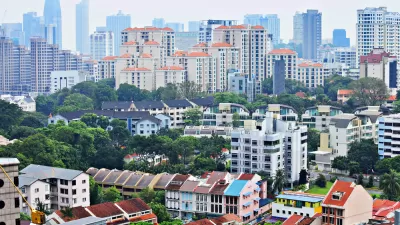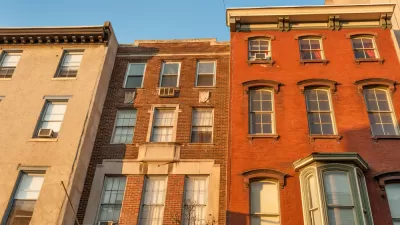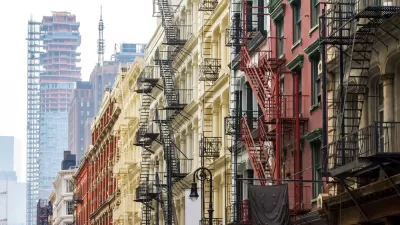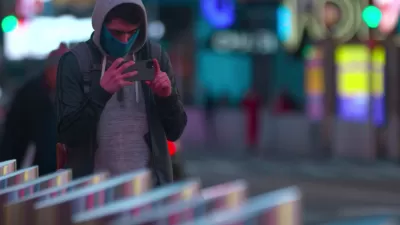According to this article, it would be a shame if the coronavirus inspires new levels of skepticism about density and city living.

Emily Badger writes of a painful realization in major cities during the pandemic: “The very thing that makes cities remarkable — the proximity of so many people to one another — is now making them susceptible in a pandemic. Density, suddenly, is bad for our health. And we are trying everything we can think of to dismantle it.”
But Badger writes in response to that realization, in an attempt to, “reconcile the benefits of density for a healthy society with the threat of density in a pandemic…” There is plenty of evidence available to accomplish that goal.
In practical ways, density makes possible many of the things we need when something goes wrong. That is certainly true of hospital infrastructure — emergency response times are faster, and hospitals are better staffed in denser places. When one store is closed or out of toilet paper, there are more places to look. When people can’t leave home for essentials, there are alternative ways to get them, like grocery delivery services or bike couriers. When people can’t visit public spaces, there are still ways to create public life, from balconies, porches and windows.
More examples of the benefits of density—and the shortcomings of sprawl—follow, to make that point that density has been good for us, and will be again soon.
Planetizen collected previous articles on either side of this theme in a previous article, "Debating the Future of Cities, and Urban Density, After the Pandemic."
FULL STORY: Density Is Normally Good for Us. That Will Be True After Coronavirus, Too.

Planetizen Federal Action Tracker
A weekly monitor of how Trump’s orders and actions are impacting planners and planning in America.

Congressman Proposes Bill to Rename DC Metro “Trump Train”
The Make Autorail Great Again Act would withhold federal funding to the system until the Washington Metropolitan Area Transit Authority (WMATA), rebrands as the Washington Metropolitan Authority for Greater Access (WMAGA).

The Simple Legislative Tool Transforming Vacant Downtowns
In California, Michigan and Georgia, an easy win is bringing dollars — and delight — back to city centers.

The States Losing Rural Delivery Rooms at an Alarming Pace
In some states, as few as 9% of rural hospitals still deliver babies. As a result, rising pre-term births, no adequate pre-term care and "harrowing" close calls are a growing reality.

The Small South Asian Republic Going all in on EVs
Thanks to one simple policy change less than five years ago, 65% of new cars in this Himalayan country are now electric.

DC Backpedals on Bike Lane Protection, Swaps Barriers for Paint
Citing aesthetic concerns, the city is removing the concrete barriers and flexposts that once separated Arizona Avenue cyclists from motor vehicles.
Urban Design for Planners 1: Software Tools
This six-course series explores essential urban design concepts using open source software and equips planners with the tools they need to participate fully in the urban design process.
Planning for Universal Design
Learn the tools for implementing Universal Design in planning regulations.
Smith Gee Studio
City of Charlotte
City of Camden Redevelopment Agency
City of Astoria
Transportation Research & Education Center (TREC) at Portland State University
US High Speed Rail Association
City of Camden Redevelopment Agency
Municipality of Princeton (NJ)





























